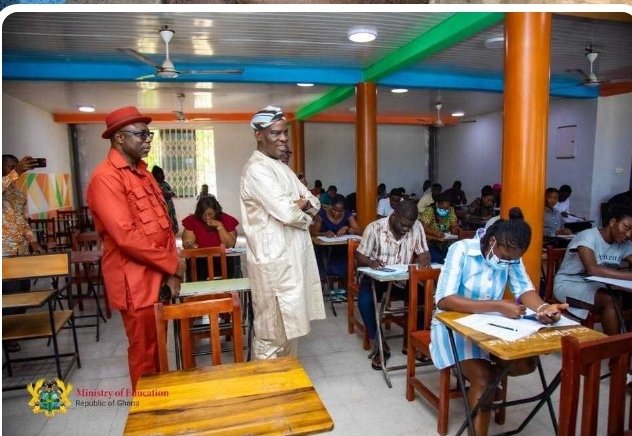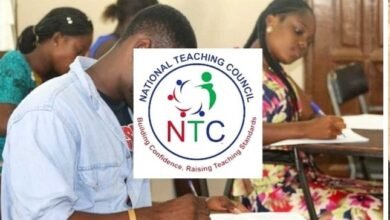
In a bold move toward improving teacher quality and reforming teacher certification in Ghana, Minister for Education, Hon. Haruna Iddrisu, paid a visit to the Accra Senior High School centre where this year’s Ghana Teacher Licensure Examination (GTLE) is currently underway. Kindly join us on WhatsApp now https://chat.whatsapp.com/IwYdwerq679JpLNCAQXatL?mode=r_c
37,000 Candidates Face the Test
The ongoing round of the GTLE has seen a turnout of 37,000 candidates, comprised of 32,000 first-time examinees and 5,000 rewriting the exam. The exam, which has become a national benchmark for professional teacher accreditation, is a key gateway to classroom employment in public schools.
During his visit, Minister Iddrisu took the opportunity to encourage the candidates to do their best, especially the newcomers, while reminding them that a second chance would be available should they not succeed on the first attempt. This assurance was particularly meaningful for candidates nervous about the implications of failure in such a high-stakes setting.
The Minister reaffirmed government’s intent to uphold access and fairness in the certification process, emphasizing that the Ghanaian government is committed to giving every aspiring teacher a fair chance. He directed the National Teaching Council (NTC) to ensure that candidates from previous cohorts who did not pass the exam get a final opportunity to rewrite before August 30.
This initiative is part of a broader transition aimed at restructuring how the GTLE is administered. One of the central policy shifts being considered is the integration of the licensure exam into the final year assessment of students in teacher education institutions.
Addressing concerns about standards, Hon. Iddrisu clarified that the reforms would not compromise the integrity or rigor of the licensing process. On the contrary, the goal is to align the exam more closely with the academic curriculum, enabling better preparation and relevance.
“We are fulfilling a promise from our manifesto, but quality remains paramount,” the Minister stated. “We’ll welcome feedback and improvements, but the core objective is to produce competent, well-trained teachers.”
He added that continuous teacher development and frequent professional assessments will remain part of the strategy to raise education standards. “Teachers must keep growing. When teachers teach effectively, learners thrive,” he noted.
By merging final academic evaluations with licensure testing, the government aims to reduce duplication, ease candidate anxiety, and foster a smoother path to professional qualification. This approach aligns with global trends in teacher education and certification, where integrated assessments are increasingly becoming the norm.
Iddrisu’s comments suggest that the government is looking not only at short-term exam logistics but also at long-term structural reform of teacher education in Ghana. The focus is clear: a stronger, better-prepared teaching workforce.
As the nation’s educational landscape evolves, these proposed reforms signal a shift toward more practical and supportive policies. For many education stakeholders, this could mean more streamlined transitions from training to employment, better-equipped classrooms, and ultimately, improved learning outcomes for students.
What’s next? While the August 30 rewrite window will offer closure to some, the true transformation lies ahead when the next cohort of teachers graduates under the new integrated assessment model. Also read College Doesn’t Have to Be Chaos: How to Make It Way Less Stressful”




